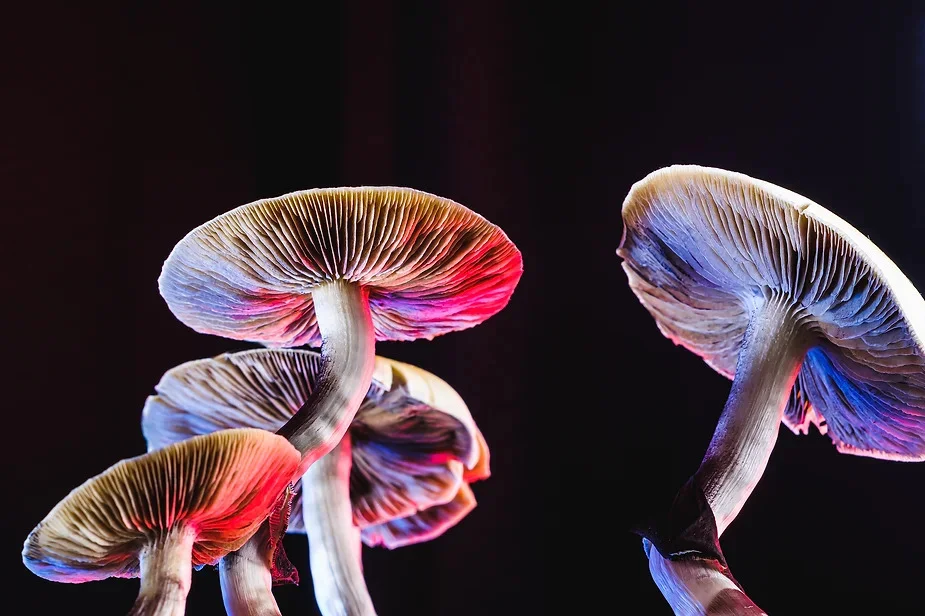
Magic mushrooms have even more unexpected benefits.
Our preoccupation with our planet’s future has been at the top of our minds for decades now. However, generating enough awareness to reach a critical mass that allows us to take decisive action has been a Sisyphean task, making experts and leaders around the world throw their hands in the air in despair.
Fortunately, science and psilocybin (also mushrooms and fungi in general), are here to help. Several studies made in recent years suggest that psychedelic substances can help unlock our nature-relatedness and augment our receptiveness to objective climate change knowledge.
The Background
Everybody remembers how, in the ’60s, you could not go anywhere without bumping into a bunch of Birkenstock-wearing, granola-eating, tree-hugging hippies. Their love for nature was only rivaled by their passion for music and substances that still needed to be sufficiently studied.
Conservatives would constantly mock their ragged looks and their zealous protection of the environment. Conventional wisdom would say that they lived in a world of fantasy, and they would grow out of it. Unfortunately, many people thought that all those “save the earth” slogans were nothing but a bunch of crazy talk.
Fast forward a few decades, environmental concerns are a priority for most politicians and activists worldwide. The fight is no longer seen as a passing fad but as an existential threat. It seems the hippies were right after all.
All that sounds like good news. The world’s agenda seems to be pointing in the right direction, and the scientific community has produced heaps of legit literature and data that provides rock-solid foundations for environmental policies. Moreover, there is no shortage of educational programs supporting the narrative, and you would be hard-pressed to find anyone who needs help understanding basic climate change facts.
However, we still see much resistance or apathy around us. This finds an explanation in psychology. Our rugged individualism and defense of the survival-of-the-fittest worldview make us impervious to ideas and plans that require selfless participation to save stuff that does not directly belong to us.
This evident egoism has been linked to deteriorated mental health that, in turn, seems to cause a disconnect between the individual and their surroundings. This might help explain the ecological neglect we see in so many parts of the world, especially in so-called first-world countries.
Additionally, the increased usage of electronic devices contributes to the generalized feeling of disconnection and despair. For many, the only window to the rest of the world is social media which, in turn, constantly bombards us with news of mass extinction, environmental destruction, and despair. This creates a vicious feedback loop that widens the chasm that separates ourselves from nature.
In other words: we’re doomed. Or, are we?
Psilocybin to the rescue
Many societies in the past have made extensive use of these seemingly magic mushrooms, sparking the interest of modern scientists in an attempt to identify and isolate their more benign components.
The scientific community is constantly studying the effects of psychoactive substances. They have been especially interested in their wellness and mental health benefits.
More recently, studies have discovered that psychoactive substances, especially psilocybin, affect cognitive openness. The study focused on participants’ intellectual and ideological biases, measuring their change over time after they voluntarily ingested various psychoactive compounds.
In preparation for the study, participants completed a carefully elaborated 10-question quiz to assess their position on climate change concerns and knowledge. They also reported their level of participation or engagement in pro-environmental activities.
They proceeded to track participants for up to 2 years to see how their stances and preferences changed over time.
The first thing they discovered was that the people who regularly consumed certain substances, namely psilocybin, were more likely to present a high nature-relatedness score compared to people who didn’t use any psychoactive substances. They signaled pro-environmental behavior and a reduced sense of alienation from nature.
Researchers admitted that this could only mean that people that enjoy nature and rely less on artificial modes of escapism would prefer using magic mushrooms. In other words, the experiment would have only shown a confirmation bias and said nothing about the effects of psilocybin mushrooms.
However, the long-term findings were a lot more revealing. It seems that the consumption of psilocybin also has an effect on open-mindedness and receptiveness.
Psychoactive substances are known for producing alterations in various areas, such as perception of reality, thought processes, and emotions. They also affect the serotonin system, altering our mood and reactions to new information.
Participants that were exposed to both psychedelics and objective knowledge about climate change and policies aimed at solving the problems associated with this crisis showed a higher degree of acceptance of this new information. Many even pursued additional information and data related to environmental issues.
There is still a lot more to discover about these marvelous mushrooms and their effects on how we perceive nature and our role in it. Yet it seems that these substances can help us unlock more direct channels with nature and discover ways to serve environmentalism’s lofty goals better.
For those who love natural products or want to know more about our natural products, browse through our website or visit our store.



